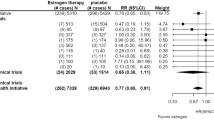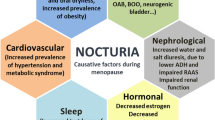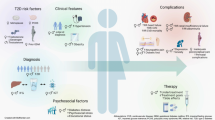Abstract
The number of older adults over 65 years of age is expected to increase to almost 100 million in the US by 2050, more than double the current figure of 46 million. Advanced age is associated with increased frailty among older Americans and often leads to increased disability, hospitalization, institutionalization, and, eventually, mortality. In search of means to improve age-related risks for adverse health outcomes, the question of restoring diminishing sex hormones has gathered much interest and has led to the practice of sex hormone replacement therapies in older men. Recent data suggest that androgen prescription rates in the US for men older than 60 years of age quadrupled from the years 2001 to 2011. While prescription sales of testosterone have increased from $150 million in 2000 to $1.8 billion in 2011, a significant portion of men prescribed testosterone replacement therapy did not meet the laboratory criteria for hypogonadism. While some clinical trials reported an association between testosterone insufficiency in older men and increased risk of death, the exact effects and consequences of testosterone replacement therapy, specifically in older men, remain unclear. This review is aimed at discussing the possible benefits and complications of testosterone replacement therapy in older men over 60 years of age.
Similar content being viewed by others
References
Bergman H, et al. Understanding and meeting the needs of the older population: a global challenge. Can Geriatr J. 2013;16(2):61–5.
Sierra F, Kohanski R. Geroscience and the trans-NIH Geroscience Interest Group, GSIG. Geroscience. 2017;39(1):1–5.
Yabluchanskiy A, et al. Advances and challenges in geroscience research: an update. Physiol Int. 2018;105(4):298–308.
Colby SL, Ortman JM. Projections of the Size and Composition of the US Population: 2014 to 2060. US Department of Commerce, Economics and Statistics Administration, US Census Bureau; 2015. pp. 1–13.
Aristophanes L. 1994: Dover edition. Dover ed. New York: Dover; 1994.
Clegg A, et al. Frailty in elderly people. Lancet. 2013;381(9868):752–62.
Perry HM 3rd, et al. Testosterone and leptin in older African-American men: relationship to age, strength, function, and season. Metabolism. 2000;49(8):1085–91.
Morley JE, Perry HM 3rd. Androgen deficiency in aging men: role of testosterone replacement therapy. J Lab Clin Med. 2000;135(5):370–8.
Borst SE, Mulligan T. Testosterone replacement therapy for older men. Clin Interv Aging. 2007;2(4):561–6.
Pardridge WM, Landaw EM. Testosterone transport in brain: primary role of plasma protein-bound hormone. Am J Physiol. 1985;249(5 Pt 1):E534–42.
Harman SM, et al. Longitudinal effects of aging on serum total and free testosterone levels in healthy men. Baltimore Longitudinal Study of Aging. J Clin Endocrinol Metab. 2001;86(2):724–31.
Winters SJ, Sherins RJ, Troen P. The gonadotropin-suppressive activity of androgen is increased in elderly men. Metabolism. 1984;33(11):1052–9.
Neaves WB, et al. Leydig cell numbers, daily sperm production, and serum gonadotropin levels in aging men. J Clin Endocrinol Metab. 1984;59(4):756–63.
Harman SM, Tsitouras PD. Reproductive hormones in aging men. I. Measurement of sex steroids, basal luteinizing hormone, and Leydig cell response to human chorionic gonadotropin. J Clin Endocrinol Metab. 1980;51(1):35–40.
Baillargeon J, et al. Trends in androgen prescribing in the United States, 2001 to 2011. JAMA Intern Med. 2013;173(15):1465–6.
Bandari J, et al. Marketing and Testosterone Treatment in the USA: a systematic review. Eur Urol Focus. 2017;3(4–5):395–402.
Surampudi PN, Wang C, Swerdloff R. Hypogonadism in the aging male diagnosis, potential benefits, and risks of testosterone replacement therapy. Int J Endocrinol. 2012;2012:625434.
Wu FC, et al. Identification of late-onset hypogonadism in middle-aged and elderly men. N Engl J Med. 2010;363(2):123–35.
Laughlin GA, Barrett-Connor E, Bergstrom J. Low serum testosterone and mortality in older men. J Clin Endocrinol Metab. 2008;93(1):68–75.
Bhasin S, Woodhouse L, Storer TW. Proof of the effect of testosterone on skeletal muscle. J Endocrinol. 2001;170(1):27–38.
Srinivas-Shankar U, et al. Effects of testosterone on muscle strength, physical function, body composition, and quality of life in intermediate-frail and frail elderly men: a randomized, double-blind, placebo-controlled study. J Clin Endocrinol Metab. 2010;95(2):639–50.
Snyder PJ, et al. Effect of testosterone treatment on bone mineral density in men over 65 years of age. J Clin Endocrinol Metab. 1999;84(6):1966–72.
Page ST, et al. Exogenous testosterone (T) alone or with finasteride increases physical performance, grip strength, and lean body mass in older men with low serum T. J Clin Endocrinol Metab. 2005;90(3):1502–10.
Storer TW, et al. Effects of testosterone supplementation for 3 years on muscle performance and physical function in older men. J Clin Endocrinol Metab. 2017;102(2):583–93.
Travison TG, et al. Clinical meaningfulness of the changes in muscle performance and physical function associated with testosterone administration in older men with mobility limitation. J Gerontol A Biol Sci Med Sci. 2011;66(10):1090–9.
Bhasin S, et al. Effect of testosterone replacement on measures of mobility in older men with mobility limitation and low testosterone concentrations: secondary analyses of the Testosterone Trials. Lancet Diabetes Endocrinol. 2018;6(11):879–90.
Amory JK, et al. Exogenous testosterone or testosterone with finasteride increases bone mineral density in older men with low serum testosterone. J Clin Endocrinol Metab. 2004;89(2):503–10.
Snyder PJ, et al. Effect of testosterone treatment on volumetric bone density and strength in older men with low testosterone: a controlled clinical trial. JAMA Intern Med. 2017;177(4):471–9.
Brock G, et al. Effect of testosterone solution 2% on testosterone concentration, sex drive and energy in hypogonadal men: results of a placebo controlled study. J Urol. 2016;195(3):699–705.
Cunningham GR, et al. Testosterone treatment and sexual function in older men with low testosterone levels. J Clin Endocrinol Metab. 2016;101(8):3096–104.
Snyder PJ, et al. Effects of testosterone treatment in older men. N Engl J Med. 2016;374(7):611–24.
Basaria S, et al. Effects of testosterone administration for 3 years on subclinical atherosclerosis progression in older men with low or low-normal testosterone levels: a randomized clinical trial. JAMA. 2015;314(6):570–81.
Johnson JM, Nachtigall LB, Stern TA. The effect of testosterone levels on mood in men: a review. Psychosomatics. 2013;54(6):509–14.
Moffat SD, et al. Longitudinal assessment of serum free testosterone concentration predicts memory performance and cognitive status in elderly men. J Clin Endocrinol Metab. 2002;87(11):5001–7.
Almeida OP, et al. One year follow-up study of the association between chemical castration, sex hormones, beta-amyloid, memory and depression in men. Psychoneuroendocrinology. 2004;29(8):1071–81.
Almeida OP, Flicker L. Testosterone and dementia: too much ado about too little data. J Br Menopause Soc. 2003;9(3):107–10.
Sih R, et al. Testosterone replacement in older hypogonadal men: a 12-month randomized controlled trial. J Clin Endocrinol Metab. 1997;82(6):1661–7.
Kenny AM, et al. Effects of transdermal testosterone on cognitive function and health perception in older men with low bioavailable testosterone levels. J Gerontol A Biol Sci Med Sci. 2002;57(5):M321–5.
Huang G, et al. Effects of long-term testosterone administration on cognition in older men with low or low-to-normal testosterone concentrations: a prespecified secondary analysis of data from the randomised, double-blind, placebo-controlled TEAAM trial. Lancet Diabetes Endocrinol. 2016;4(8):657–65.
Haddad RM, et al. Testosterone and cardiovascular risk in men: a systematic review and meta-analysis of randomized placebo-controlled trials. Mayo Clin Proc. 2007;82(1):29–39.
Fernandez-Balsells MM, et al. Clinical review 1: Adverse effects of testosterone therapy in adult men: a systematic review and meta-analysis. J Clin Endocrinol Metab. 2010;95(6):2560–75.
Calof OM, et al. Adverse events associated with testosterone replacement in middle-aged and older men: a meta-analysis of randomized, placebo-controlled trials. J Gerontol A Biol Sci Med Sci. 2005;60(11):1451–7.
Gagliano-Juca T, et al. Effects of testosterone replacement on electrocardiographic parameters in men: findings from two randomized trials. J Clin Endocrinol Metab. 2017;102(5):1478–85.
Basaria S, et al. Adverse events associated with testosterone administration. N Engl J Med. 2010;363(2):109–22.
Finkle WD, et al. Increased risk of non-fatal myocardial infarction following testosterone therapy prescription in men. PLoS One. 2014;9(1):e85805.
Vigen R, et al. Association of testosterone therapy with mortality, myocardial infarction, and stroke in men with low testosterone levels. JAMA. 2013;310(17):1829–36.
Huggins C, Hodges CV. Studies on prostatic cancer. I. The effect of castration, of estrogen and androgen injection on serum phosphatases in metastatic carcinoma of the prostate. CA Cancer J Clin. 1972;22(4):232–40.
Pechersky AV, et al. Androgen administration in middle-aged and ageing men: effects of oral testosterone undecanoate on dihydrotestosterone, oestradiol and prostate volume. Int J Androl. 2002;25(2):119–25.
Dobs AS, et al. Pharmacokinetics, efficacy, and safety of a permeation-enhanced testosterone transdermal system in comparison with bi-weekly injections of testosterone enanthate for the treatment of hypogonadal men. J Clin Endocrinol Metab. 1999;84(10):3469–78.
Basaria S, Dobs AS. Risks versus benefits of testosterone therapy in elderly men. Drugs Aging. 1999;15(2):131–42.
Salam R, Kshetrimayum AS, Keisam R. Testosterone and metabolic syndrome: the link. Indian J Endocrinol Metab. 2012;16(Suppl 1):S12–9.
Yao QM, et al. Testosterone level and risk of type 2 diabetes in men: a systematic review and meta-analysis. Endocr Connect. 2018;7(1):220–31.
Kelly DM, Jones TH. Testosterone and obesity. Obes Rev. 2015;16(7):581–606.
Rossouw JE, et al. Risks and benefits of estrogen plus progestin in healthy postmenopausal women: principal results. From the Women’s Health Initiative randomized controlled trial. JAMA. 2002;288(3):321–33.
Acknowledgements
The authors acknowledge support from the Oklahoma Center for the Advancement of Science and Technology (HR17-070), the National Institute of General Medical Sciences (NIGMS)-funded Oklahoma Shared Clinical and Translational Resources program (U54GM104938), the Presbyterian Health Foundation, and the NIGMS/National Institutes of Health-funded Cellular and Molecular GeroScience CoBRE (1P20GM125528, sub#5337).
Author information
Authors and Affiliations
Corresponding author
Ethics declarations
Funding
No specific funding was provided for the preparation of this review.
Conflicts of interest
Andriy Yabluchanskiy and Panayiotis D. Tsitouras have no conflicts of interest to disclose.
Rights and permissions
About this article
Cite this article
Yabluchanskiy, A., Tsitouras, P.D. Is Testosterone Replacement Therapy in Older Men Effective and Safe?. Drugs Aging 36, 981–989 (2019). https://doi.org/10.1007/s40266-019-00716-2
Published:
Issue Date:
DOI: https://doi.org/10.1007/s40266-019-00716-2




